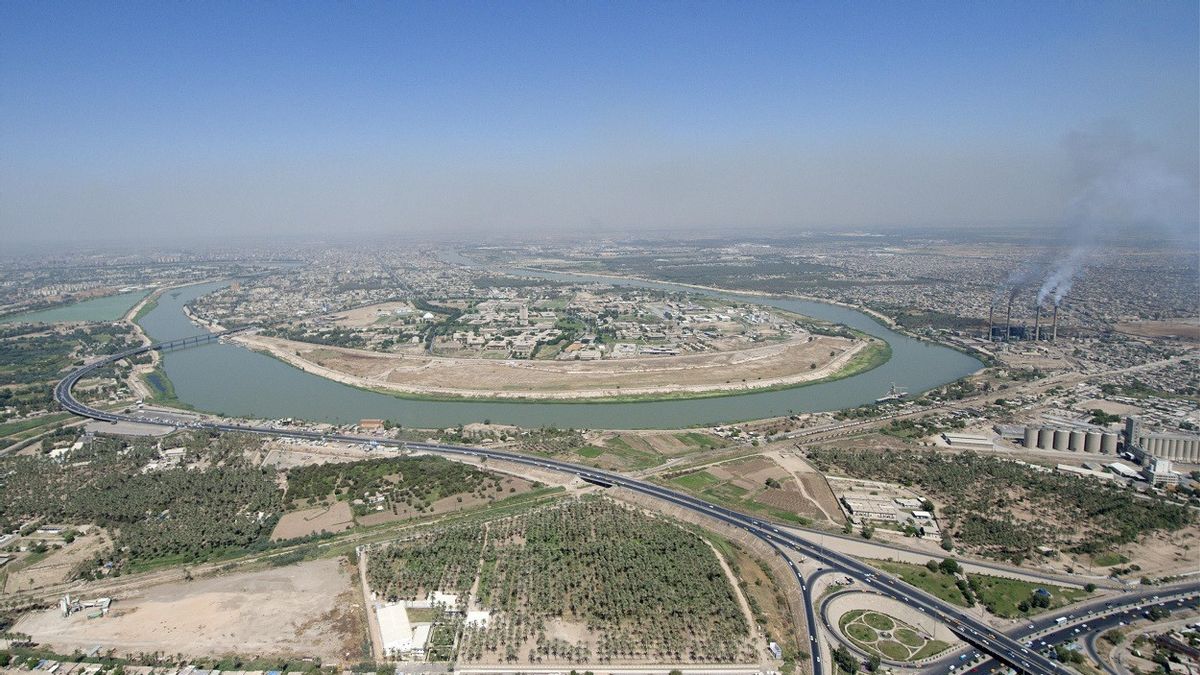JAKARTA - The Tigris and Euphrates rivers, two rivers that flank Iraq are threatened with drying up by 2040 due to lower water levels and climate change, a government report said on Thursday.
For years, the construction of dams upstream of Turkey, Syria and Iran has partially blocked the flow of the Tigris and Euphrates Rivers on which Iraq depends.
Climate change is contributing to rising temperatures and erratic rainfall, pushing fears of water shortages in Iraq to new levels, the report said.
"The rate of decline in water imports into Iraq has started gradually and will increase to 30 percent, with a decrease of 11 billion cubic meters from the amount flowing into the country, by 2035," reads a report by the Ministry of Water Resources, citing The National News December 2.
The country's water imports during the summer are estimated at around 40 billion cubic meters, meaning a 30 percent reduction in water, which would result in Iraq receiving 11 billion cubic meters a year, the report added.
Meanwhile, Iraq has been known as the land between two rivers, the Tigris and the Euphrates since the dawn of civilization. But most of the country's water supply comes from or passes through neighboring countries, which have restricted its supply for years.
These conditions have affected Iraqi agriculture and increased water pollution in large parts of the country. Iraq's population growth, water mismanagement, and climate change are also affecting Iraqis' access to water.
Severe drought will affect the country by 2025, the report said, with the Euphrates River almost completely drying to the south, while the Tigris River turned into a watercourse with limited resources.
"The strategic plan drawn up by the Ministry of Water Resources identifies steps to deal with this deficit, namely modernizing and readjusting irrigation projects and systems, as the main consumer of water in Iraq is the agricultural sector," explained Aoun Diab, consultant to the ministry.

Projects must be implemented to "save and rationalize large amounts of water". The cost of the project will range from $50 billion to $70 billion, which will take until 2035 to complete the preservation of areas currently being cultivated, Diab said.
However, the ministry does not have the financial resources to carry out the project, so the review will address the issue, he said. Last week, Minister of Water Resources Mahdi Rashid Al Hamdani predicted water shortages in the coming months, especially in the eastern province of Wasit.
Reports show that residents of several villages are preparing to move from their ancestral lands due to water scarcity and the unsustainability of the agriculture on which they depend.
"The impact in Wasit has affected other provinces, such as the southern cities of Maysan, Dhi Qar, and Basra. The water scarcity crisis should not be handled by the ministry alone, but the whole country," said Al Hamdani.
"Violations are starting to appear again, and the biggest ones are in Wasit, because it is a crossing of the Tigris River. Every violation that occurs has a real impact and is reflected in Dhi Qar, Maysan, and Basra," he explained.
SEE ALSO:
To note, the World Bank has warned Iraq, water will not reach a third of the irrigated land by 2050, if the temperature rises 1 degree Celsius, as expected.
Meanwhile, the Iraqi Government is currently facing political upheaval, security challenges, economic crisis, and disputes with neighboring countries, which have occupied most of its attention and resources.
Iraq pushed Turkey and Iran to reach an agreement guaranteeing a fair share of water, but no progress was made.
The English, Chinese, Japanese, Arabic, and French versions are automatically generated by the AI. So there may still be inaccuracies in translating, please always see Indonesian as our main language. (system supported by DigitalSiber.id)


















